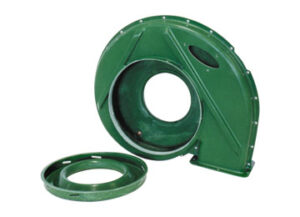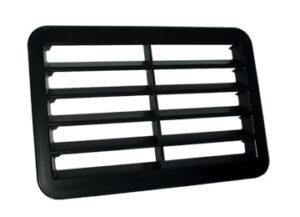Differences Between Closed Molding vs Open Molding
October 1, 2025Custom thermoset plastic molding is a service sought by many industries due to the incredible versatility it offers. For over 50 years, Osborne has been providing customized plastic solutions for the most complicated parts. In the agriculture industry, the manufacturing of plastics is used in many applications, including implement components, equipment cases, and livestock feeding and weighing equipment like feeders, animal heat pads, and other farming supplies.
The flexibility offered by custom-molded thermosets has allowed Osborne to assist ag equipment manufacturers with crafting innovative equipment parts that stand up to harsh conditions, boosting performance and durability. As residents of rural Kansas, we see firsthand how important these two qualities are to the agriculture and farming community, who counts on those parts.
Each ag equipment component produced at Osborne is created with its own unique combination of plastic materials or composites, using the molding process that best fits its purpose — resin transfer molding (RTM) or reaction injection molding (RIM) with innovative materials like polydicyclopentadiene (pDCPD). The result is a product made to exact specifications required for peak performance in the field — corrosion resistance, stiffness, color, impact strength, and heat or flame resistance — from a mold designed solely for the client and their part.
The benefits of thermoset plastic molding led John Deere® to partner with Osborne for the production of two parts for their Model 9970 Cotton Picker. The two components required different plastics and were molded with different processes.
First, an industrial blower housing unit and cover was developed to contend with damp and abrasive cotton fields. Those conditions accelerated the corrosion process, which reduced the airflow that moves the cotton to the machine’s collection bin.
 Industrial Blower Housing Unit
Industrial Blower Housing Unit
- Materials: Fiberglass reinforced polymer (FRP) composite with pre-molded reinforcing cores, pigmented to “John Deere®” The composite was specially formulated to provide abrasion resistance.
- Process: RTM, which achieves the precise specifications required for the unit as well as enhanced airflow.
In the process of developing the blower housing, Osborne engineers were able to recommend another product that would simplify the manufacturing and installation of a louver for the engine compartment and hydro pump doors on the same machine.
 Engine Louver
Engine Louver
- Material: Polyurethane. Replacing the metal louver with one made of polyurethane reduced weight and component cost, improved airflow, and reduced inventory for John Deere®.
- Process: RIM, which allowed for increased precision with John Deere®’s specifications, adding strength and reliability.
These two high-quality products aced both in-house and worldwide field tests thanks to their design, material properties, and our ISO-certified quality control processes. Additionally, when molded products need additional supporting services, such as CNC machining or tool-and-die services, Osborne offers a convenient one-stop-shop experience.
Osborne Livestock Equipment
In addition to working with other equipment manufacturers, Osborne also manufactures hog feeders and other Osborne-branded livestock equipment. Utilizing similar materials and molding processes to the parts molded for John Deere®, Osborne Big Wheel pig feeders provide outstanding performance in application.
- Material: FRP composite, chosen to produce a farm and animal-tough product.
- Process: RTM. Sharp precision allows parts to be used interchangeably across different models.
If you are interested in plastic molding for some of your organization’s equipment, tell us about your project! We’d love to answer your questions and provide you with a proposal to help solve your toughest material challenges.
This article is part of a series about thermoset plastic applications in various industries. Learn how custom plastic molding benefits the military (link coming soon), heavy machinery (link coming soon) and chemical manufacturing industries as well.


